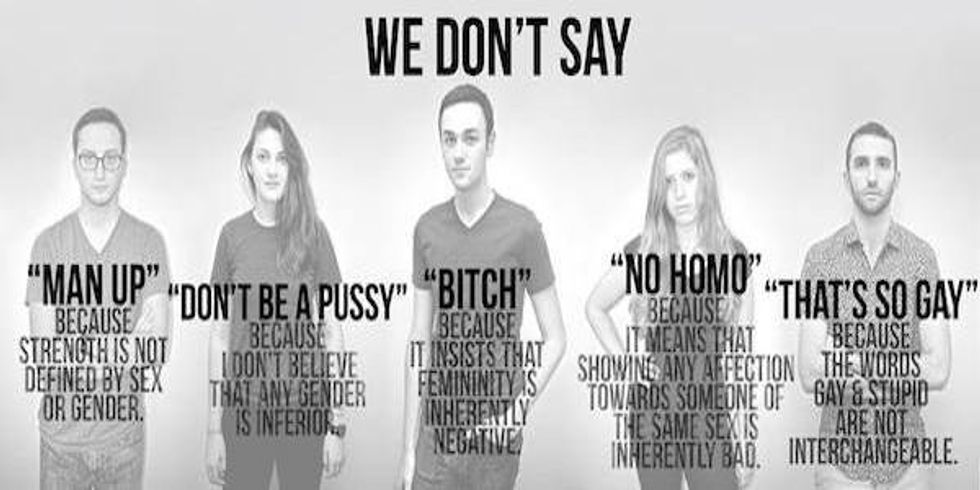"We have become so politically correct, we don't know what the hell we are doing." - Donald Trump
"We're so uptight and so politically correct now that we apologize for saying 'lives matter?'" - Jeb Bush
“Political correctness is imposed by the secular progressives and those who wish to fundamentally change our society." - Ben Carson
These are recent quotes from 2016 presidential candidates about the role political correctness plays in today's society. Hating political correctness seems to be the right's way of being politically correct, so to speak.
These men prioritize their right to use slurs over other's rights to avoid discrimination and overlook the broader issue that hate speech represents. This seems to be a popular stance, especially as it applies to college campuses.
I understand the perspective that a constant need for political correctness may stifle the spread of new ideas. I get that some find that college students are too "sensitive" and that nitpicking everyone's speech can hinder the learning experience.
What I don't understand is why those against political correctness seem to think racism or xenophobia or any discriminatory language is crucial to the learning experience. When you boil down the issues that cause alarm and offense on campuses, we arrive at the same basic evils: racism, xenophobia, homophobia, etc. It almost always boils down to some sort of oppression and discrimination.
So saying that avoiding language that contributes to these systemic injustices stifles the learning experience is saying that racism or xenophobia, or any other form of oppression, plays a role in the way we learn -- that we can not effectively learn if we do not use this harmful dialogue. In reality, eliminating discriminatory language would make the learning experience more inclusive to these oppressed groups.
Perhaps the most common argument against political correctness is in regards to the "hyper-sensitivity" of college students. There is no shortage of right wing memes belittling the offense people take from slurs or micro-aggressions. There are multiple problems with this response. The first is that when a person tells you something you said offended them or hurt them, you do not get to decide if that is valid. You don't get to decide whether something should or shouldn't be offensive to someone. Calling someone "too sensitive" is the same thing as telling them their emotions are invalid and taking it upon yourself to determine what emotional reaction is appropriate for certain situations -- you don't get to decide that! You cannot monitor the way people should feel!
Additionally, many of those against political correctness, in my experience, seem to be white, straight, and cisgender. That is, they do not even belong to the group they are deeming "too sensitive." They are belittling the experience of these people without any idea of what it is like to be them. It is easy to say a slur is harmless if you've never had to experience the deeper oppression it is linked to.
The deeper issue here is the inability to understand how the micro affects the macro. That is, how our everyday interactions play a part in the wide-spread institutional and systemic relationships. Most of these "hyper-sensitive millennials" are not campaigning for political correctness because you hurt their feelings, they are doing it because they understand how social consciousness plays a part in social awareness and social change. They understand that combating racist language can help combat racism as a whole.
It comes down to making people understand that their language is problematic and that they are contributing to a culture in which white, straight cisgender men are privileged over minorities. While it's true that racism is a more complex issue and requires more direct action, altering daily behavior can make people feel safer and more comfortable. Basically, someone tries to make you aware that your words contribute to systemic oppression, you do not get to shake it off, belittle them, and invalidate that concern by calling them too sensitive.
Toni Morrison has a quote that I think sums up the issue very nicely. She says, "What I think the political correctness debate is really about is the power to be able to define. The definers want the power to name. And the defined are now taking that power away from them."
You don't get to decide whether your words are harmful or not, so be mindful how you speak to people.





















